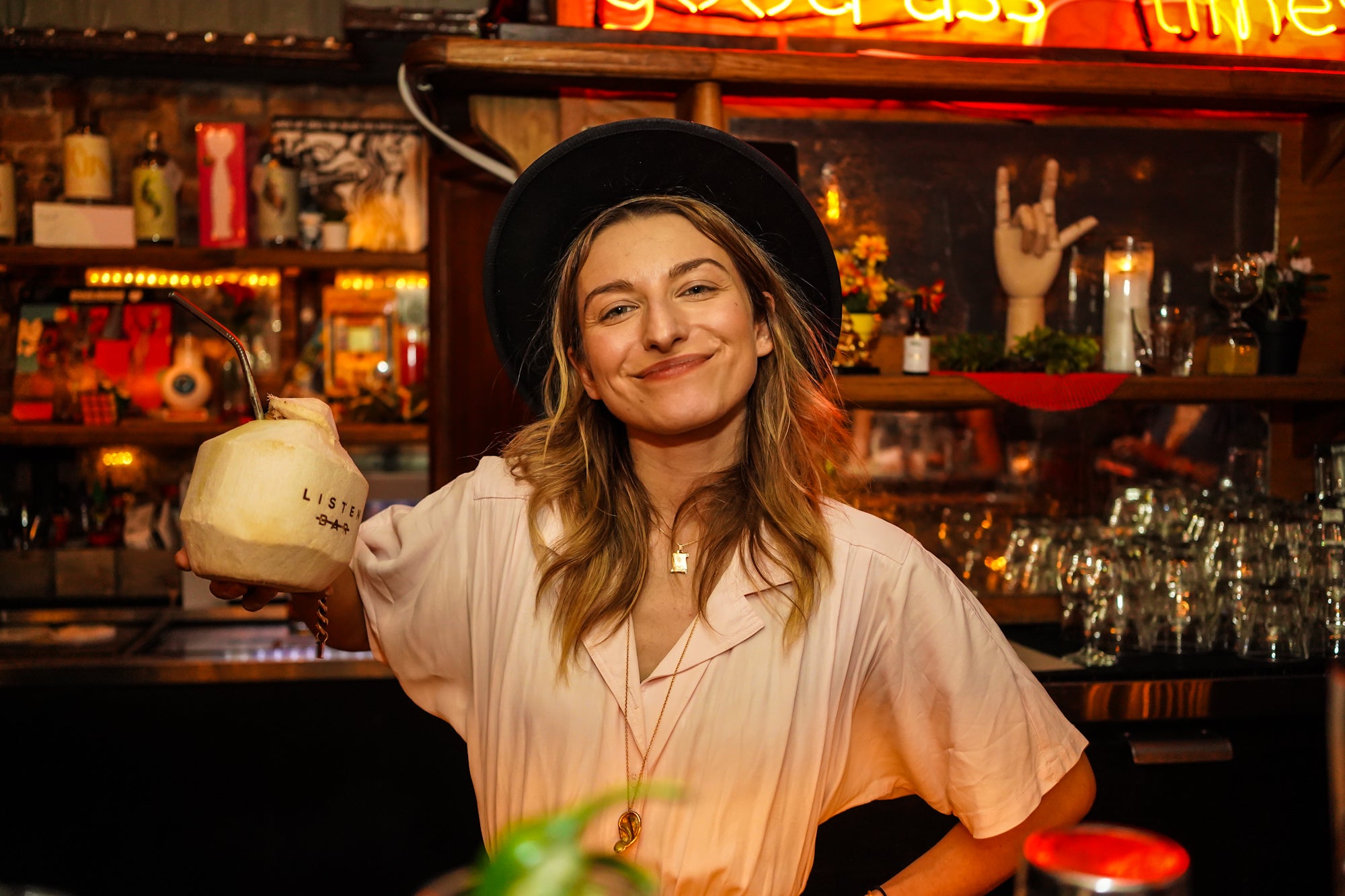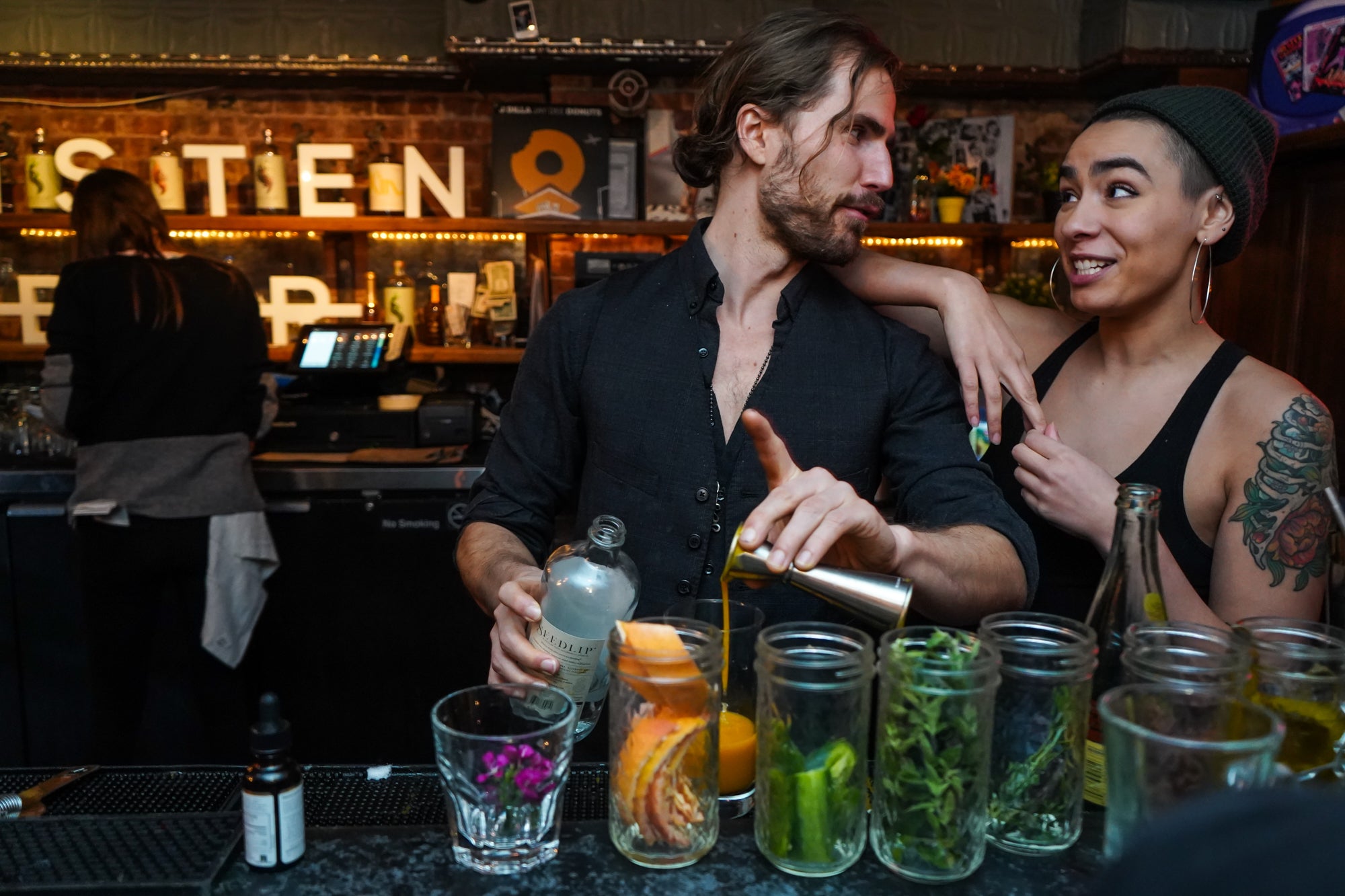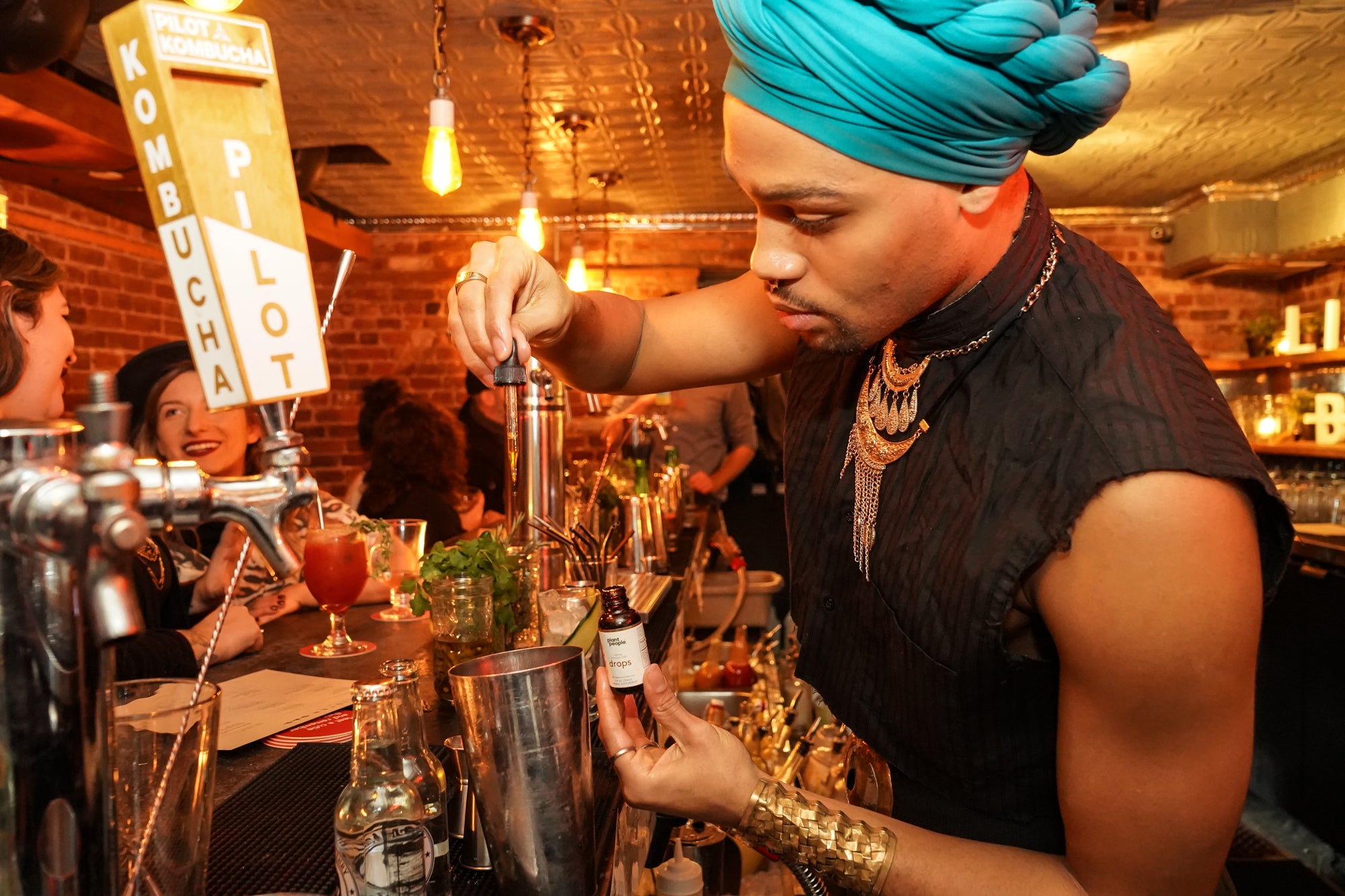The Independent's journalism is supported by our readers. When you purchase through links on our site, we may earn commission.
How sober-curious speakeasies have become New York’s hottest new night out
It’s 90 years since the end of Prohibition, and although speakeasies still attract visitors to New York, there’s a new drinking trend that’s pulling in the locals. Rachel Ifans takes an unexpected turn in the city that never sleeps

Your support helps us to tell the story
From reproductive rights to climate change to Big Tech, The Independent is on the ground when the story is developing. Whether it's investigating the financials of Elon Musk's pro-Trump PAC or producing our latest documentary, 'The A Word', which shines a light on the American women fighting for reproductive rights, we know how important it is to parse out the facts from the messaging.
At such a critical moment in US history, we need reporters on the ground. Your donation allows us to keep sending journalists to speak to both sides of the story.
The Independent is trusted by Americans across the entire political spectrum. And unlike many other quality news outlets, we choose not to lock Americans out of our reporting and analysis with paywalls. We believe quality journalism should be available to everyone, paid for by those who can afford it.
Your support makes all the difference.The law that banned the manufacture, sale and transportation of alcohol in the US came into force in 1920, but instead of stopping people from drinking, it merely sent them underground. For 13 long years, it was like whack-a-mole for the authorities; no sooner had they shut down one secret bar than another one sprang up overnight.
While many of these “speakeasy” bars – so named because you had to whisper a password to gain entry – were drab pop-ups in tenement buildings that served alcohol cut with formaldehyde, and small taverns in upstate towns, city centre hotspots were swanky, with the hushed sound of live jazz, plenty of shoulder shimmying and more than a whiff of organised crime.
As a hobbyist historian with a passion for the interwar years, I booked myself on a speakeasy walking tour on a recent trip to New York.
Here, I learned about New York City’s most successful speakeasy owner, a woman by the name of Texas Guinan who was nicknamed Queen of the Night for her power over the city’s nightlife. Protected by, and in cahoots with, notorious bootlegger Owney “The Killer” Madden, she was famed for her rebellious nature, exorbitant prices, outrageous entertainment and an uncanny knack for evading police raids.

Although I made new friends from Long Island, Australia and Vancouver on the tour as we crawled from bar to bar, I came away with an early-evening hangover and a sense of unease. It all felt a bit – dare I say – bogus.
From chats with bartenders in the following days, it seems that, even in my woo-woo-infused haze, I was on to something. Speakeasies are a divisive topic among New Yorkers these days; while for visitors, there’s a romanticism around their history and secrecy, for locals they are sometimes seen as gimmicky.
Read more on New York travel:
I asked Lorelei Bandrovschi, the founder of Listen Bar, for the locals’ view. She said: “It’s mixed. The concept of a speakeasy isn’t as trendy as it was a few years ago, although some speakeasies like PDT are icons in the bar world and have retained fans among locals.”
JW Wiseman, founder of Curious Elixirs and sober speakeasy Club Curious, says that if they’re on Google Maps, they’re not a speakeasy. “There are almost no real speakeasies left; they’re all bars pretending to be secret,” he says. “Yes, tourists are still flocking to faux speakeasies in droves, but a true speakeasy, like Club Curious, is interested in the idea of building community. You have to know it’s there to enter.”
Ironically, the “true speakeasy” Wiseman references is an alcohol-free space – far removed from booze bars of the past, but part of a flourishing sober-curious scene in the city.

My curiosity is piqued, so I speak to Elizabeth Gascoigne from Absence of Proof, a company that hosts alcohol-free parties and events, about the new trend.
“More people are making mindful choices around their alcohol consumption,” she says. “There are several non-alcoholic pop-ups that host events, and more bars and restaurants are including elevated non-alcoholic adult beverages on their bar menus due to increased demand.”
Bandrovschi agrees that socialising alcohol-free has become mainstream: “Since I launched Listen Bar five years ago, I’ve noticed a shift in the expectations around going out alcohol-free. It used to be that you would feel like the odd one out and have to accommodate everyone around you – from bartenders who wouldn’t know what to serve you, to friends who would get defensive about their own drinking.”
For Wiseman, it’s early days, but he agrees the trend is genuine. His company is nine years old, and each year is bigger than the last. “With our Club Curious speakeasy, we’re experimenting with what happens when you centre creativity instead of alcohol. That’s why we have incredible artists and performers and creators come through – people of all different stripes connecting and coming in for a different reason,” he says.
And it’s not just alcohol-free establishments that are seeing the shift. Savannah Seaman is associate director of sales at the Intercontinental New York Barclay, a hotel that was opened during the Prohibition era. Sober-curious herself, Seaman says of the hotel’s bar: “We have ramped up our zero-proof offerings as it is becoming a more requested item, and we also offer all our traditional cocktails as mocktails.”

Bandrovschi thinks the way forward is a mix of dedicated alcohol-free spaces as well as improved alcohol-free offerings in spots that also serve booze. The trend is taking hold upstate, too, says Jason Marcus of Hotel Lilien in the Catskills. “So much of the cocktail experience is about the craft, and zero-proof cocktails empower everyone to enjoy. For guests who want to wake up and hit the ski slopes, a zero-proof cocktail can help them feel like they’re on vacation and hold the hangover.”
Remembering how I tried to clear my head with a brisk walk on the High Line the morning after my speakeasy tour, I’m curious to find out whether the benefits of sober socialising are purely physical and fiscal.
Gascoigne says not. “People notice that when they’re not drinking, they’re able to connect on a deeper level with others,” she says. “You’re your 100 per cent authentic self. The friends I’ve made sober have been much longer lasting and deeper relationships than friends I made while I was out drinking.”
Top spots for the sober-curious in New York City (and beyond)
I can tell you it’s a sober speakeasy in Brooklyn but beyond that, it’s all top secret. Sign up to Curious Elixir’s newsletter to find out what’s happening and when.
Named after the Greek goddess of (deep breath) magic, witchcraft, the night, light, ghosts and the moon, this bar in the East Village has a strong feminine feel and uses intriguing ingredients like blueberry basil syrup, coconut shavings, orange clove and spiced cane in its alcohol-free mixes.
Of no fixed abode, Listen pops up all over the place, holding regular events and parties, cocktail classes and alcohol-free group trips.
When Elizabeth Gascoigne moved to New York, she wanted the world-famous NYC nightlife but without alcohol. Finding it didn’t exist, she set out to change that, one non-alcoholic party at a time.
An Art Deco hotel where the glamour of the Jazz Age mixes with the modern day. All cocktails in The Parlour Bar are available in zero-alcohol versions.
A boutique hotel in Tannersville in upstate New York that serves craft cocktails (alcoholic and non-alcoholic) in its beautiful wood-clad bar and snug. Vintage jukebox included.
Read more on the best hotels in New York:
- Best luxury hotels in New York
- Best affordable hotels in New York
- Best boutique hotels in New York
Join our commenting forum
Join thought-provoking conversations, follow other Independent readers and see their replies
Comments